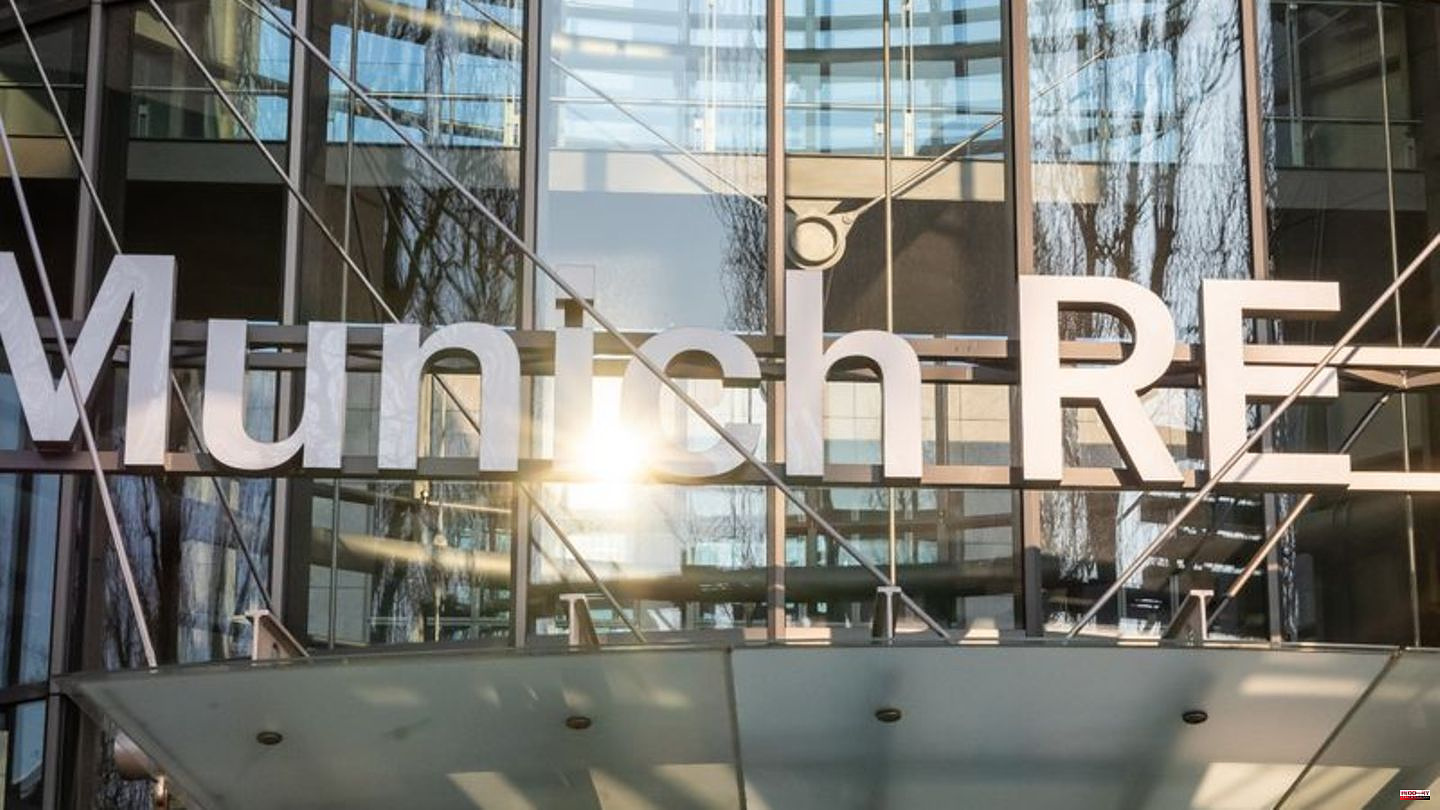The insurance business becomes more difficult and risky due to the simultaneous concurrence of several unfavorable factors from inflation to natural disaster. Reinsurance could become both more expensive and more scarce in terms of supply, with demand rising at the same time. That's what Munich Re, one of the world's most important companies in this field, expects.
Part of the problem is due to the difficult economic situation: high inflation is driving up the amount of damage, as board member Thomas Blunck and Germany boss Claudia Hasse explained. Rising interest rates, in turn, lead to a complicated mechanism in which reinsurers have fewer funds available to assume risks from primary insurers such as Allianz or Axa. "The rise in interest rates leads to a lower value of the securities in fixed-income securities," said Blunck.
"Higher interest rates are attractive in the long term, but the short-term effect may result in less capacity being available in the markets." Lower "capacity" would mean that reinsurers would offer less coverage to primary insurers or conclude fewer contracts overall. Previously, Swiss Re - one of Munich Re's biggest competitors - had promised higher prices and asked primary insurers to take on more risks on their own account.
Primary insurers conclude their contracts with reinsurers in renewal rounds, in which the contract terms are renegotiated at regular intervals. Inflation is "a very big issue in the current renewal," said Germany boss Hasse.
Munich Re has been in talks with customers for a long time. "The first step is that we understand what the primary insurer is doing in its pricing policy. The second step is that we see whether there is a gap on the reinsurance side, i.e. whether we believe that the primary insurer is not fully reflecting the increased costs ."
Private customers cannot take out policies with reinsurers, but the renewal rounds are important for consumers: if the capacities offered by reinsurers decrease, the primary insurers have to bear a larger part of their risks and losses on their own. As a result, price increases by primary insurers are more likely.
Quite apart from that, the rising claims sums caused by inflation are driving price increases by primary insurers. This is noticeable in car insurance. "In the engine area, the last two years were very good years, that has changed significantly this year," said Blunck.
"It can be assumed that this year will probably bring a technical loss for primary insurers in the car business. This is largely due to the fact that spare parts prices have increased, and both new and used cars have become significantly more expensive." There is much higher inflation in this sector than in other sectors.
Added to this are natural catastrophes and severe storms, which, according to Munich Re data, cause far greater damage than at the beginning of the 1980s. The likelihood of severe hail damage has increased. "In France there were hailstorms with very large hailstones, in north-eastern Spain even up to twelve centimeters in diameter," said Blunck.
Munich Re does not want to take any disproportionate risks in cyber reinsurance against cybercrime, which is also potentially damaging. "It's a big growing market," Blunck said. The manager put Munich Re's global market share in this area at 14 percent. "We want to continue to make the corresponding capacity available." The focal points in the portfolio reinsured by Munich Re are commercial transactions or private households with smaller limits. "So far we've done well, our combined ratio in Europe is under 90 percent, worldwide at 85."
In Europe, the cyber insurance business has multiplied in just a few years, but some primary insurers have even reduced offers and coverage due to growing losses in this area. "Five years ago, the premium volume in the European market was around 400 million euros, now it's two billion," said Germany boss Hasse.








